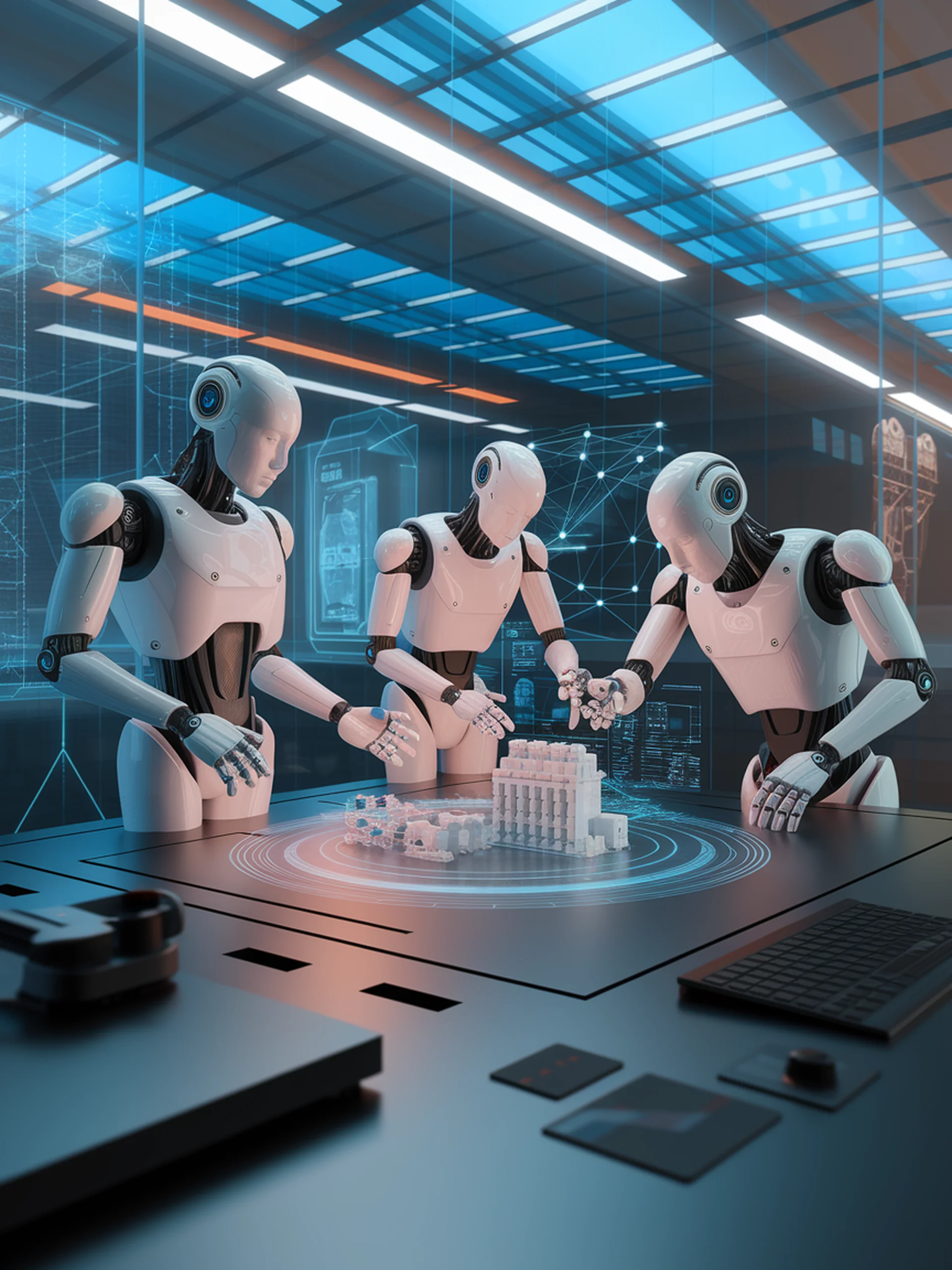
Multi-Agent Collaboration and Social Intelligence
When AI Systems Work Together
Cooperative AI Research
- Enabling multiple agents to share information and work toward common goals
- Developing emergent communication protocols between agents
- Creating coordination mechanisms for complex tasks
- Understanding complex dynamics in multi-agent systems
Multi-Agent Architectures
- Centralized orchestration versus decentralized self-organization
- Hierarchical arrangements with specialized roles and responsibilities
- Peer-to-peer networks where agents negotiate directly
- Market-based approaches using internal economies of incentives
Social Intelligence Development
- Theory of mind capabilities for modeling others' knowledge and goals
- Intention recognition understanding human and agent objectives
- Norms and conventions in agent societies
- Trust and reputation systems for reliable collaboration
Human-Agent Teamwork
- Natural communication interfaces for seamless interaction
- Shared mental models between humans and AI systems
- Adaptive assistance based on human cognitive load and state
- Explainable team behavior for understanding collective decisions
Open Research Questions
- How to prevent unintended collusion or deception between agents
- Methods for scaling coordination to hundreds or thousands of agents
- Approaches to resolve conflicts between competing agent goals
- Techniques for attributing responsibility in collective decisions
"By 2030, the greatest value from AI may come not from individual agents but from their ability to work together—with each other and with humans—forming collaborative systems that are far more capable than any single agent could be, similar to how human organizations achieve complex goals through specialization and coordination."